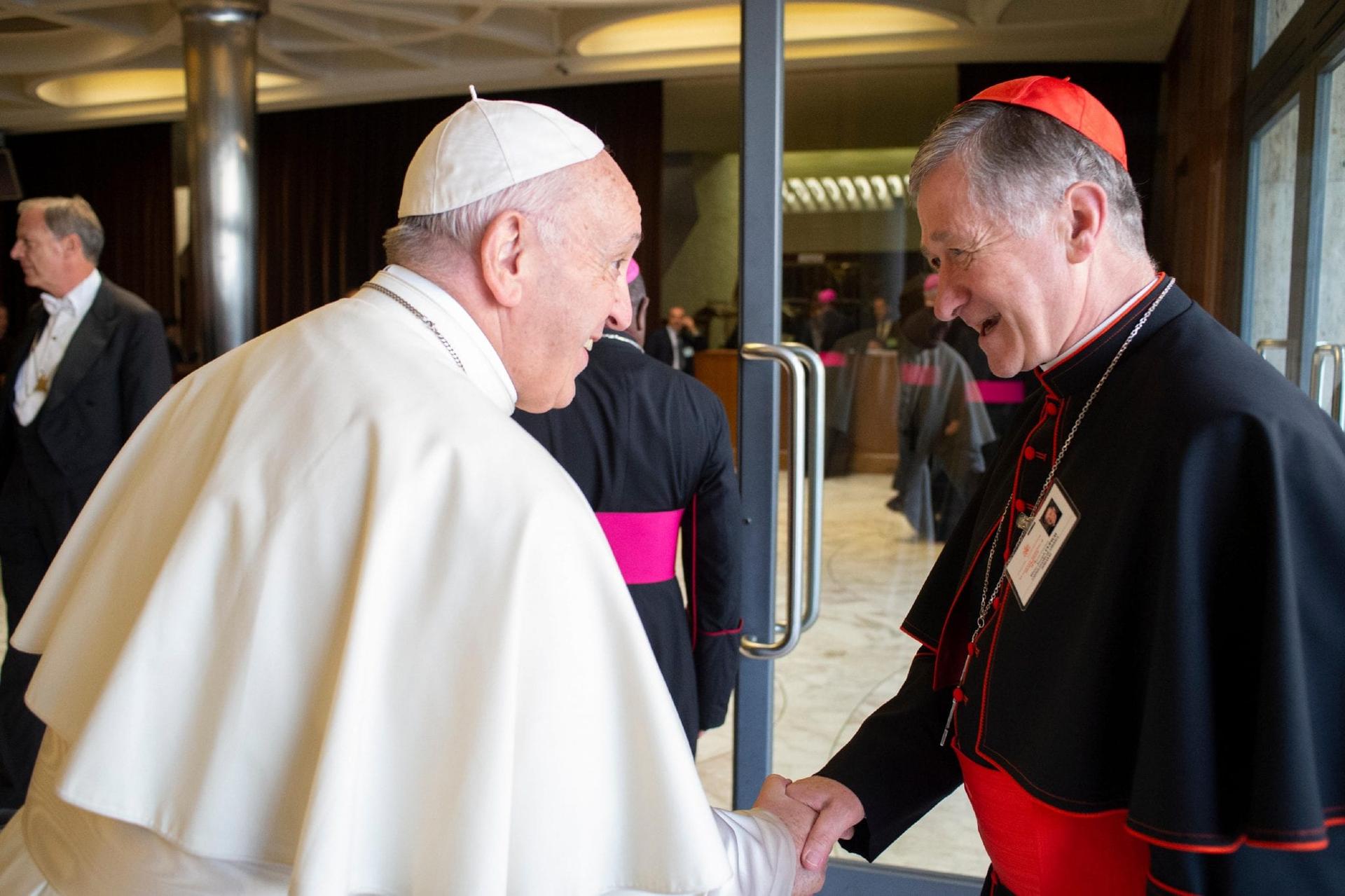NEW YORK — Cardinal Blase Cupich of Chicago, named Friday by Pope Francis to the planning committee for February’s high-stakes Vatican meeting on sex abuse, says the pope is seeking the “full involvement of the global Church in assuring the protection of children around the world from clerical sexual abuse.”
In an interview with Crux on Friday, he said the committee is “committed to achieving specific outcomes from this meeting that reflect the mind of Pope Francis.”
In addition to Cupich, the pope appointed Archbishop Charles Scicluna of Malta, the Vatican’s leading prosecutor on child abuse; German Jesuit Father Hans Zollner, a member of the Pontifical Commission for the Protection of Minors and head of the Center for Child Protection at the Pontifical Gregorian University; and Cardinal Oswald Gracias of Mumbai, who also serves on Francis’s “C-9” council of cardinal advisors.
In October, Gracias voiced concern in an interview with Crux about the February summit.
“It cannot be cosmetic,” Gracias said. “Either it will be successful, or it will be a disaster for the Church. [The pope] isn’t going to call another meeting six months later, or two years later. No one is going to come and take it seriously. This is very important.”
Asked if people should be worried about the February meeting Gracias said, “We should, we should.”
While some observers were surprised that Cardinal Sean O’Malley of Boston, who also leads the Pontifical Commission for the Protection of Minors, was not named to the planning group, Cupich said O’Malley and the commission will be involved and consulted, along with “both clerics and lay women and men, who have shown expertise and experience in these areas.”
Cupich recalled Francis’s visit to the United States in September 2015 when he spoke with victims of sexual abuse and told them “words cannot fully express my sorrow for the abuse you suffered. You are precious children of God who should always expect our protection, our care and our love. I am profoundly sorry that your innocence was violated by those whom you trusted.”
The cardinal said “the Holy Father understands well our suffering” in the United States, but also emphasized that the February summit will seek to address the issue for the global Church.
“It’s important to note that by calling a global meeting he understands this to be a global issue, and he wants to reinforce our shared commitment as a church to establishing responsiveness, accountability, and transparency,” added Cupich.
“Time and again he has shown that he sees the protection of children and the accompaniment of those who have been harmed as a priority of the whole people of God and central to our mission,” he said.
Cupich told Crux that in calling all of the presidents of episcopal conferences from around the world to Rome, the pope is seeking both a comprehensive understanding of past failings, as well as global solutions moving forward.
“That means first of all making sure that all Church leaders have a full and firsthand understanding of the impact of clerical sexual abuse on victims when that standard is not met. It also means naming and taking ownership for our failures fully in order to ensure they are not repeated. Of course, assuring they are not repeated will require all levels of the Church to take responsibility — local, regional, national, and universal,” he said.
“To that end, we need to define these particular responsibilities more clearly and establish responsiveness, transparency, and accountability, particularly for bishops,” he added.
Cupich said that he is aware that Catholics around the world are expecting concrete outcomes from the meeting, but also heeded that in order to fully address the issue of sexual abuse, deeper transformation will be needed.
“Pope Francis is calling for a change of culture, that is, a reform in how we approach ministry, for in addition to being a crime, sexual abuse of minors by clerics is about the corruption of our ministry. This is why this meeting has to be understood as part of a long-term commitment to reform, realizing that one meeting will not solve every issue,” he said.
To that point, the cardinal said February should be seen as the start of a process that will require the participation of the worldwide Church, not just Rome-centered initiatives.
“This meeting is the beginning of a worldwide reform that will need to be ongoing and will involve a process of initiatives on regional, national and diocesan levels,” he said.











